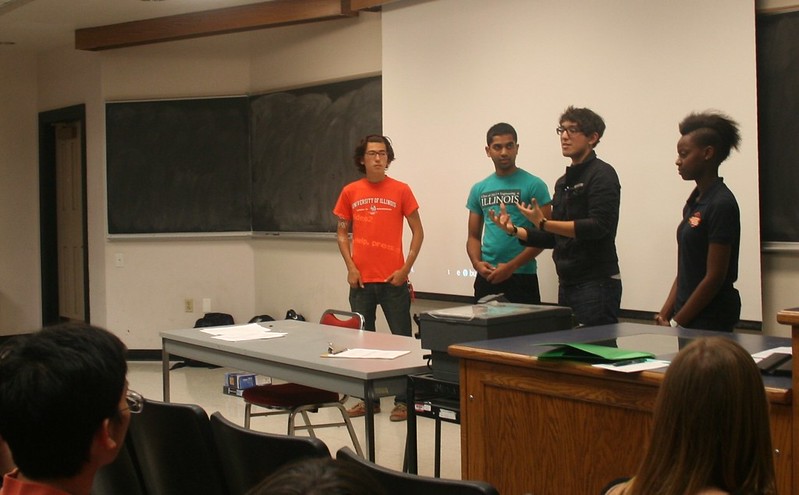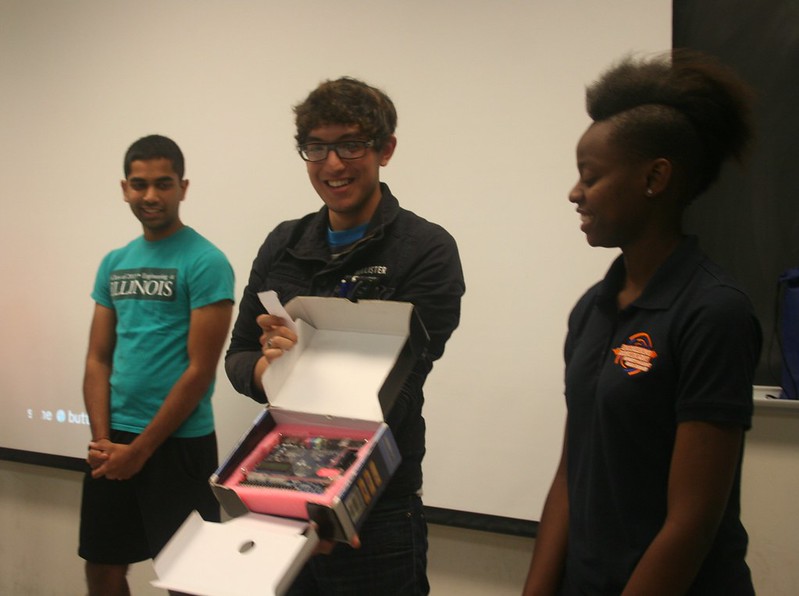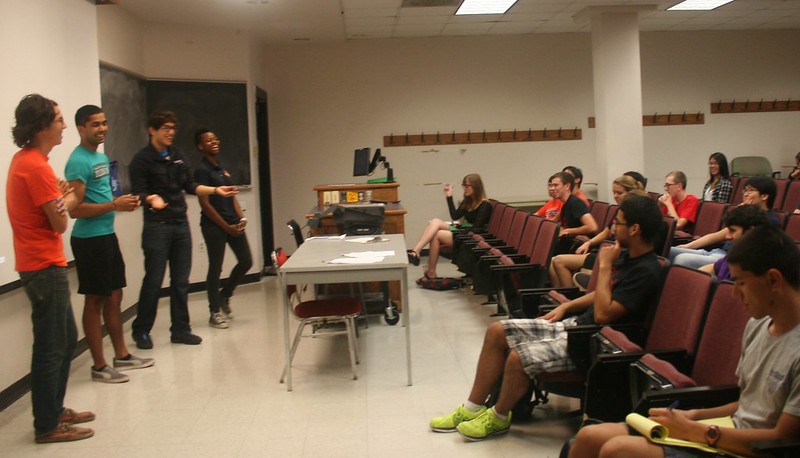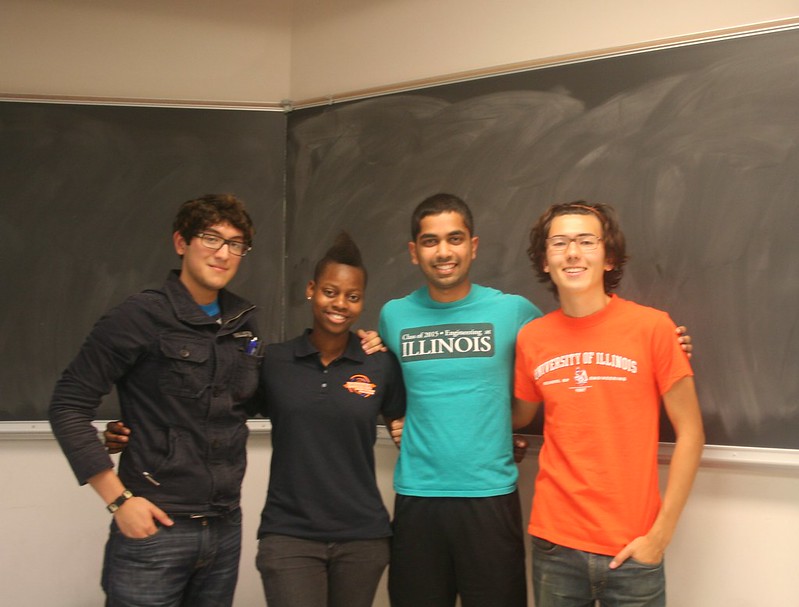First Steps to Success in Engineering
ENG 101
The first year experience is full options for a freshman. Engineering at Illinois offers studies ranging from working with rockets to mending heart cells. Students newly admitted to the engineering program have the option to take ENG 101, a course that covers the wide range of studies within the college. The class helps students thinking of transferring to a different engineering discipline, double-majoring, declaring a minor, and acquaints them with Engineering Career Services. It’s a class that can help you find your fit during that formative first-year.
ENG 101 will usually have professors from each discipline come and describe what a track in their department could look like.
But in a recent ENG 101 lecture, junior-year students came in to give freshmen some seasoned advice. The students are engineering ambassadors and they spoke from their own personal experience.

From left: Martin Kim, Ravi Chandra Yada, Edgar Uribe, and Chuma Kabaghe
Edgar Uribe, Ravi Chandra Yada, Chuma Kabaghe, and Martin Kim were the speakers.
The student ambassadors led an open discussion with the freshman, and made an effort to inform as well as relate to the new engineers. In short the students were engaging and passionate speakers- just as they were trained to be.
The Engineering Ambassadors program’s mission is to equip engineering undergrads with the leadership and communication skills necessary to inspire the engineer in everyone. Assistant Dean, Marie-Christine Brunet, stressed to the ENG 101 class that the only prerequisite you need to be an engineering ambassador, or an engineer, is passion for the subject.
#1) Finding Your Passion
Students in ENG 101 took the opportunity to ask the juniors how they chose their engineering majors.
For Edgar, science and engineering was the closest he could get to magic.
“When I was a kid, I would take my TV remote apart and wondered at the mess of pieces and how I could put it back together into something that worked again.”
Edgar is studying computer engineering in the ECE department.

Edgar shows an example of an EC 385 project in where the device is wired to accept and perform code
Chuma is also studying computer engineering, but didn’t discover her true calling until later. She was not sure what her core interests in engineering were until she worked in software engineering with Microsoft. She loved the idea of being able to develop new products and hopes to own an engineering firm one day.
#2) Early Involvement = Career Fair Talking Points
Engineering organizations can help you develop a resume and give you direction on your major.
“You’re not going to get any less busy the older you are in college,” said Edgar to a student who asked about time-management. Getting involved early with an organization can pay off significantly at a career fair.
Even as a freshman, going to a career fair is valuable to learning interview skills, especially when talking about a tangible engineering experience. “In an interview, you can say ‘I built this!’ and show off your design or project to a recruiter,” said Ravi
To see a list of engineering organizations, visit the Engineering Council website.

Chuma asked the class, “What do you do when you end up with a summer that has no internship or research experience?” She told the students to take advantage of that summer to take classes, study abroad, or volunteer.
#3) Build a place within a company
For many student engineers, interning at the same company for two summers or more is common. “Think like a company: if they can get you early on, it helps them mold you into what their particular company needs,” said Ravi.
Look at your first internship experience as a way to get to know where you want to work after graduation. If you see that it’s not particularly where you want to be, look for a different company next summer. But if you love their environment, ask the company about returning.
#4) Research on Campus
Students in the class asked how they went about research experience on campus. Ravi explained that though it may seem daunting at first, it’s really all about connecting with a professor.
“Professors aren’t going to just shoo you away when you ask them about a position. At the least, they’ll ask you to take a specific class so you’re ready for their research next semester,” said Ravi.

Comments - No Responses to “First Steps to Success in Engineering”
Sorry but comments are closed at this time.